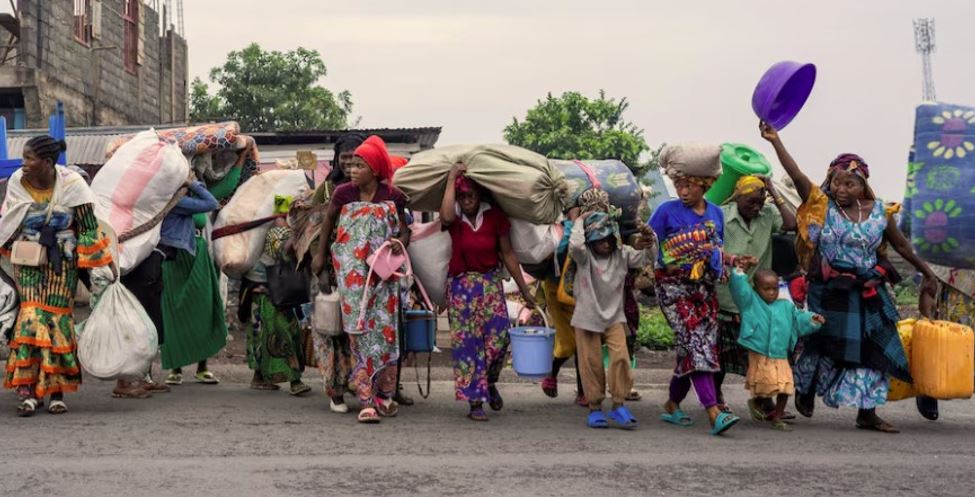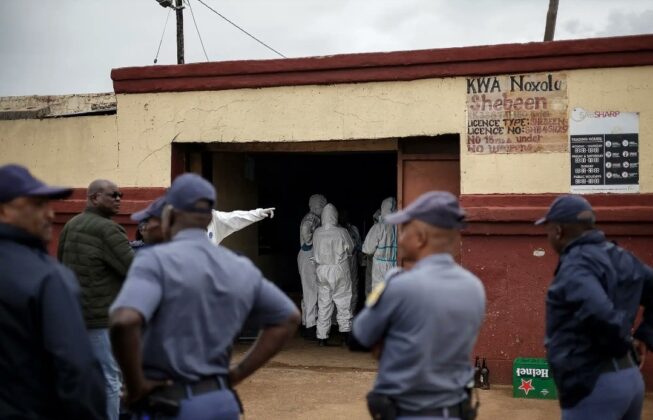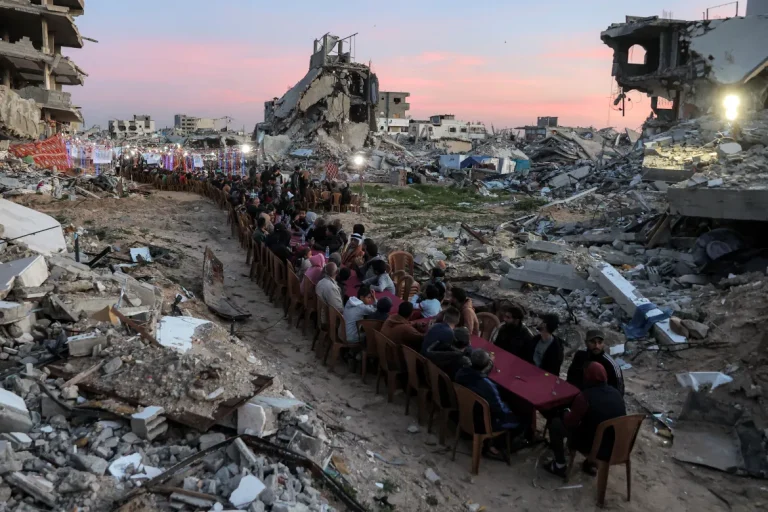
People forced from their homes escape the clashes between M23 insurgents and the Congolese military in Goma. Image: Aubin Mukoni.
(The Post News)– The DRC-Rwanda peace accord has gained renewed momentum as the Democratic Republic of Congo (DRC) and Rwanda reaffirmed their commitment to fully implement the June 2025 Washington Accord. Leaders aim to curb ongoing violence in eastern DRC and stabilize the Great Lakes region. The second assembly of the joint supervisory committee in the United States highlighted progress and challenges under the DRC-Rwanda peace accord.
Delegates stressed that dismantling M23 and the Democratic Forces for the Liberation of Rwanda (FDLR) networks is essential to restoring security. Kinshasa reiterated that it does not support the FDLR, while Kigali confirmed its respect for the DRC’s territorial integrity. Both governments pledged to immediately halt support to non-state armed groups except where it directly aids the DRC-Rwanda peace accord’s implementation. Committee members emphasized that swift action is crucial to protect civilians and reinforce trust between the two nations.
DRC-Rwanda Peace Accord Targets Security Challenges and M23
Security concerns dominated the discussions, particularly the M23 insurgent group, which continues to destabilize eastern DRC. Congolese authorities and M23 blamed each other for violating the truce. Earlier this year, M23 launched a major offensive into Goma, leaving casualties scattered in the streets and displacing thousands of residents.
Delegates stressed that dismantling M23 and the Democratic Forces for the Liberation of Rwanda (FDLR) networks is essential to restoring security. Kinshasa reiterated that it does not support the FDLR, while Kigali confirmed its respect for the DRC’s territorial integrity. Both governments pledged to immediately halt support to non-state armed groups except where it directly aids the accord’s implementation.
To strengthen coordination, Rwanda and the DRC agreed to establish a direct military and intelligence communication channel. This channel will allow real-time information sharing, rapid responses to emerging threats, and strengthened trust. Delegates noted that the mechanism could prevent misunderstandings that might derail the accord or escalate border tensions.
Humanitarian Impact and Regional Stability
Delegates warned that the accord must address both security and humanitarian concerns to achieve lasting results. The United Nations reports that 7 million Congolese have been displaced, describing the situation as “one of the lengthiest, most intricate, and severe humanitarian emergencies worldwide.” Implementing the DRC-Rwanda peace accord would protect displaced populations, reduce human suffering, and restore access to essential services, including education, healthcare, and economic opportunities.
The committee emphasized that years of conflict have left millions traumatized, homeless, and struggling to meet basic needs. Rwanda and the DRC committed to continuous dialogue and mutual accountability.
Regular meetings will monitor progress, resolve challenges, and reinforce cooperation. Delegates noted that honoring the accord demonstrates both nations’ dedication to peace, addresses the root causes of conflict, and offers hope to millions whose lives have been upended by years of violence and displacement.
Delegates also stressed the broader regional benefits of full implementation. Peace and stability in eastern DRC would enhance economic growth, strengthen political cooperation in the Great Lakes region, and reduce dependence on international humanitarian aid. Combining political, military, and humanitarian strategies is critical to ensuring that the DRC-Rwanda peace accord delivers tangible outcomes for affected communities.
Rwanda and the DRC committed to sustaining high-level meetings to maintain momentum, monitor security developments, and address challenges quickly. Delegates concluded that persistent commitment, alongside active support from international partners, including the United States, Qatar, and the African Union, will help prevent further escalations, restore stability, and safeguard the millions impacted by conflict.
Background of the Conflict and DRC-Rwanda
The mineral-rich eastern region of the Democratic Republic of Congo has suffered unrest for over three decades, tracing back to the 1994 Rwandan genocide. Militants have fought the central government to control lucrative mining regions, while neighboring countries have intervened. In the 1990s, two massive wars, called Africa’s World Wars, killed millions.
Earlier this year, the M23 rebel faction launched major offensives across eastern DRC, capturing Goma in January and Bukavu in February. Thousands have died, and millions have been displaced. M23, led by ethnic Tutsis, claims it fights to protect minority rights after prior peace agreements failed.
The group first formed in 2012, captured Goma, then retreated under United Nations (UN) and Congolese military pressure. Combatants integrated into the army under assurances for Tutsi protection but resumed fighting in 2021, alleging the promises were broken.
The June 2025 Washington Accord, signed between DR Congo and Rwanda, aims to curb conflict. While the pact does not directly involve M23, evidence shows Rwanda supports the rebels. UN reports suggest thousands of Rwandan soldiers fight alongside M23, and Kigali allegedly commands many operations, although Rwanda denies involvement, claiming defensive measures to protect its borders.
The roots of the conflict trace back to Rwanda’s 1994 genocide, which killed around 800,000 Tutsis. Survivors and the Tutsi-led Rwandan army pursued perpetrators into DRC, escalating ethnic tensions with local Tutsis. The FDLR, a Hutu faction linked to the genocide, remains active in eastern DRC. Rwanda accuses Kinshasa of supporting the FDLR. Under the Washington Accord, both countries agreed to end state support for armed groups, neutralize the FDLR, and halt defensive measures, laying the foundation for renewed peace and regional stability.
The ongoing conflict has devastated communities across eastern DRC, displacing millions and leaving countless families without access to basic services. Implementing the DRC-Rwanda peace accord offers a critical path toward restoring safety, rebuilding infrastructure, and enabling displaced populations to return home. Both governments have pledged to uphold the agreement, dismantle armed groups like the M23 and FDLR, and create channels for direct military and intelligence communication.



